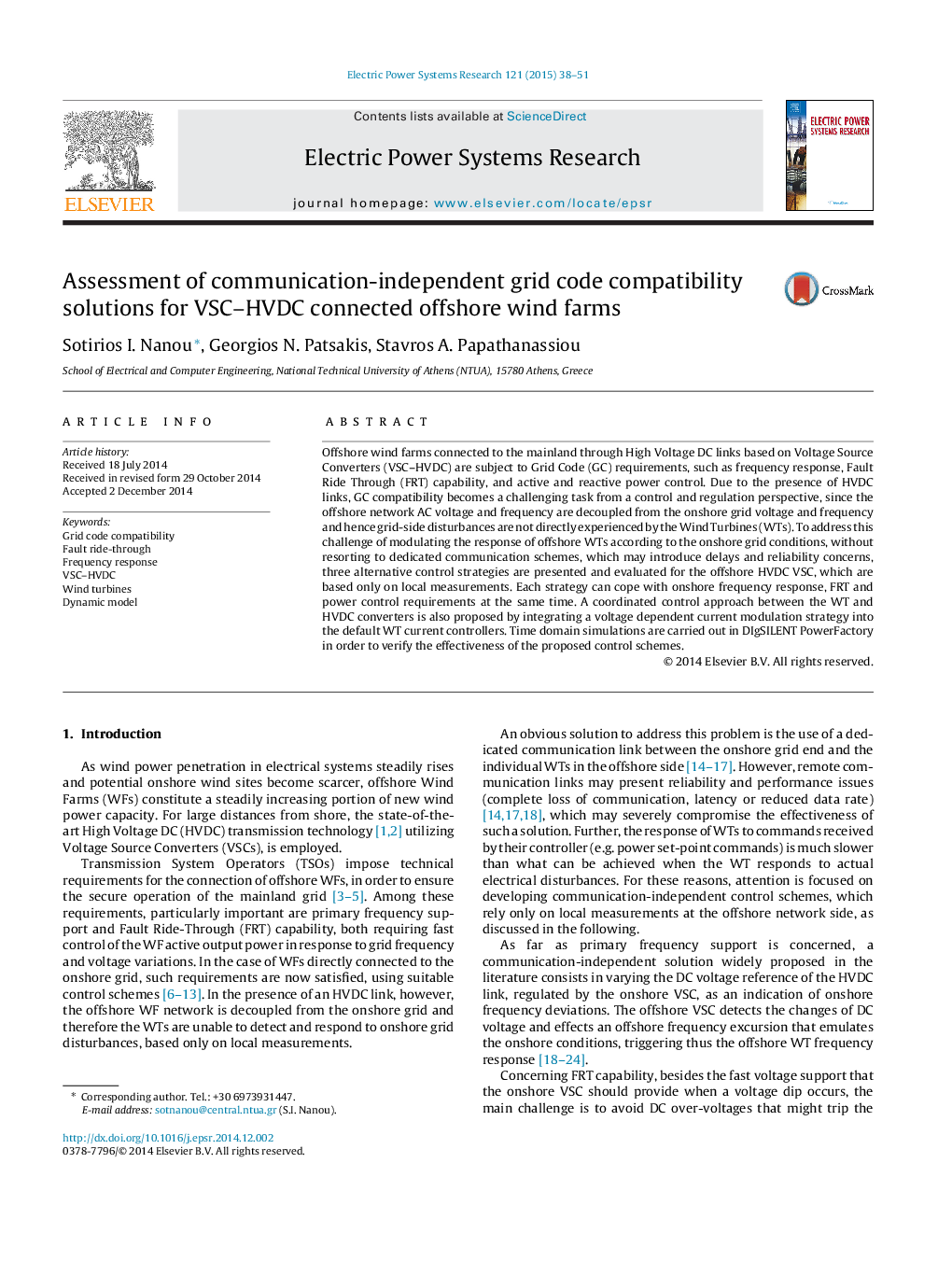| Article ID | Journal | Published Year | Pages | File Type |
|---|---|---|---|---|
| 7112769 | Electric Power Systems Research | 2015 | 14 Pages |
Abstract
Offshore wind farms connected to the mainland through High Voltage DC links based on Voltage Source Converters (VSC-HVDC) are subject to Grid Code (GC) requirements, such as frequency response, Fault Ride Through (FRT) capability, and active and reactive power control. Due to the presence of HVDC links, GC compatibility becomes a challenging task from a control and regulation perspective, since the offshore network AC voltage and frequency are decoupled from the onshore grid voltage and frequency and hence grid-side disturbances are not directly experienced by the Wind Turbines (WTs). To address this challenge of modulating the response of offshore WTs according to the onshore grid conditions, without resorting to dedicated communication schemes, which may introduce delays and reliability concerns, three alternative control strategies are presented and evaluated for the offshore HVDC VSC, which are based only on local measurements. Each strategy can cope with onshore frequency response, FRT and power control requirements at the same time. A coordinated control approach between the WT and HVDC converters is also proposed by integrating a voltage dependent current modulation strategy into the default WT current controllers. Time domain simulations are carried out in DIgSILENT PowerFactory in order to verify the effectiveness of the proposed control schemes.
Related Topics
Physical Sciences and Engineering
Energy
Energy Engineering and Power Technology
Authors
Sotirios I. Nanou, Georgios N. Patsakis, Stavros A. Papathanassiou,
